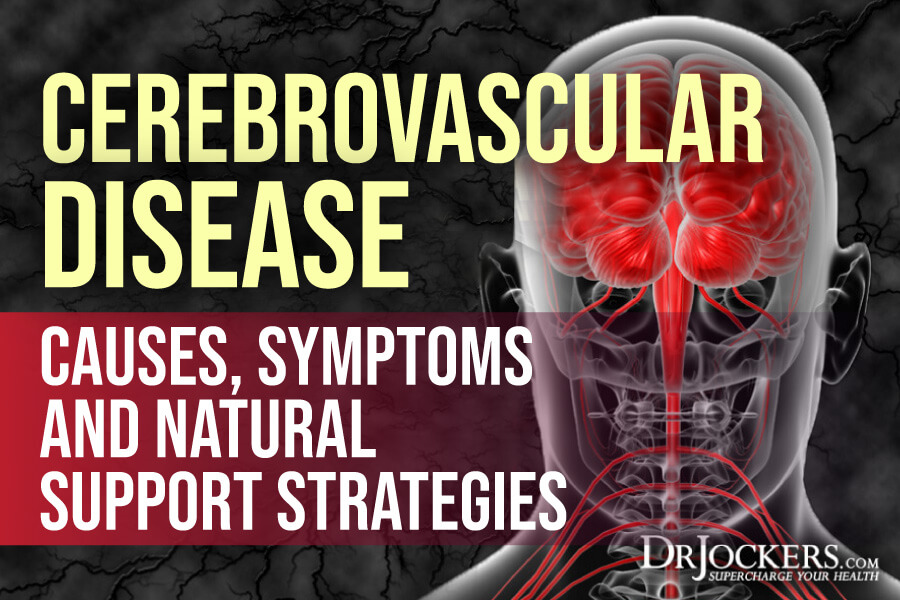 Cerebrovascular Disease: Causes, Symptoms & Support Strategies
Cerebrovascular Disease: Causes, Symptoms & Support Strategies
Cerebrovascular disease is a group of different diseases that affect your blood vessels and your brain’s blood supply. It is a serious and life-threatening condition that is the fifth most common cause of death in the United States. You can make lifestyle changes to improve cerebrovascular health and your quality of life.
In this article, you will learn what cerebrovascular disease is. You will understand it’s symptoms and main causes. I will explain what tests I recommend to assess your risk factors. I will also share my top recommendations to improve cerebrovascular health.
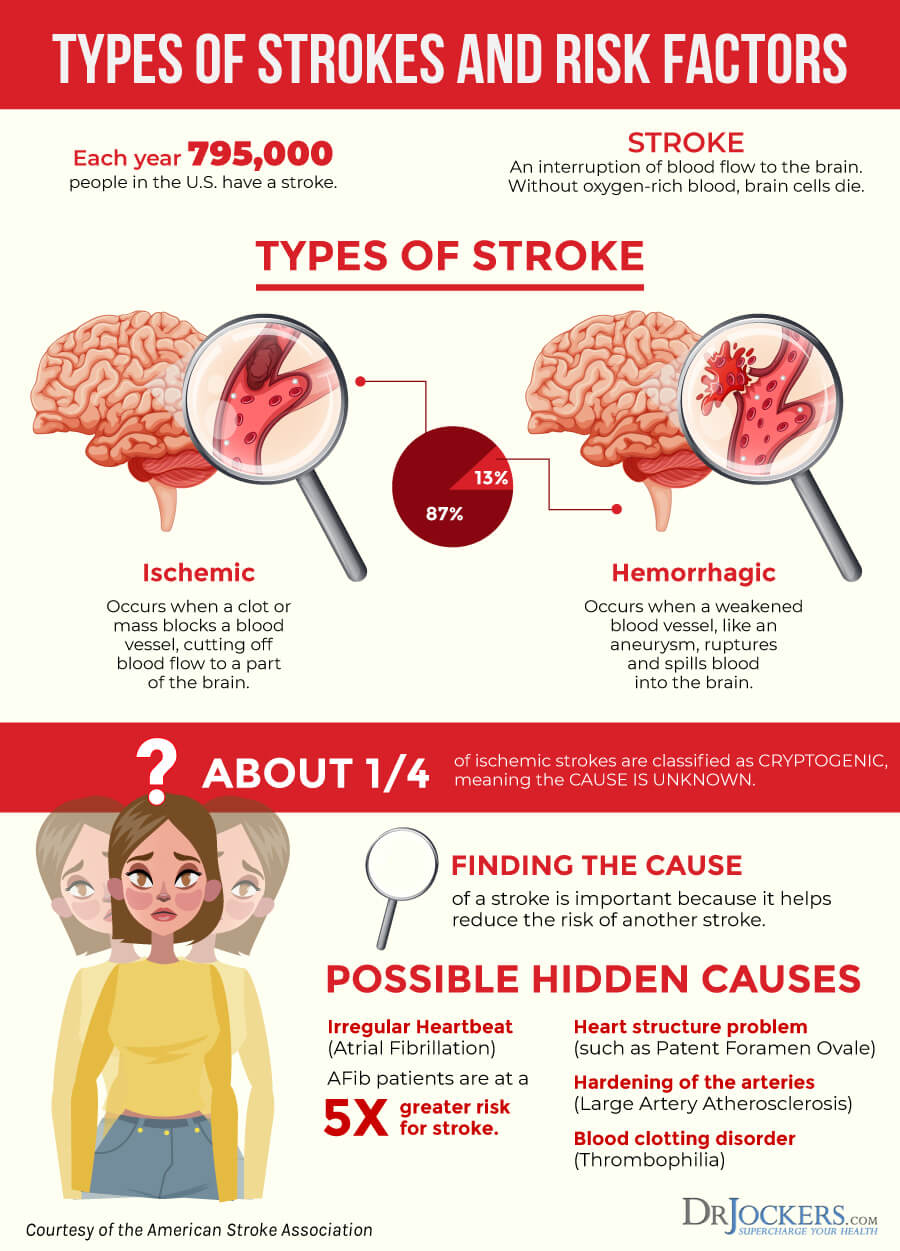
What Is Cerebrovascular Disease
Cerebrovascular disease is not only one disease. Instead, it’s a group of diseases, disorders, and conditions that affect your blood vessels and blood supply to the brain, including stroke, vascular malformation, aneurysm, and transient ischemic attack (TIA). Cerebrovascular disease is the most common life-threatening neurological event and the fifth most common cause of death in the US alone (1, 2, 3).
Cerebrovascular disease may be caused by a variety of issues, including thrombosis, cerebral venous thrombosis affecting the vein of the brain, embolic arterial blood clot occurring in the artery of the brain, or atherosclerosis from narrowing of the arteries. If there is a blockage, hemorrhage, or malformation in your blood vessels, your brain cells won’t be able to get enough oxygen resulting in potential brain damage. The good news is that you can reduce your risks of developing cerebrovascular disease by understanding its root causes and taking appropriate dietary and lifestyle measurements.
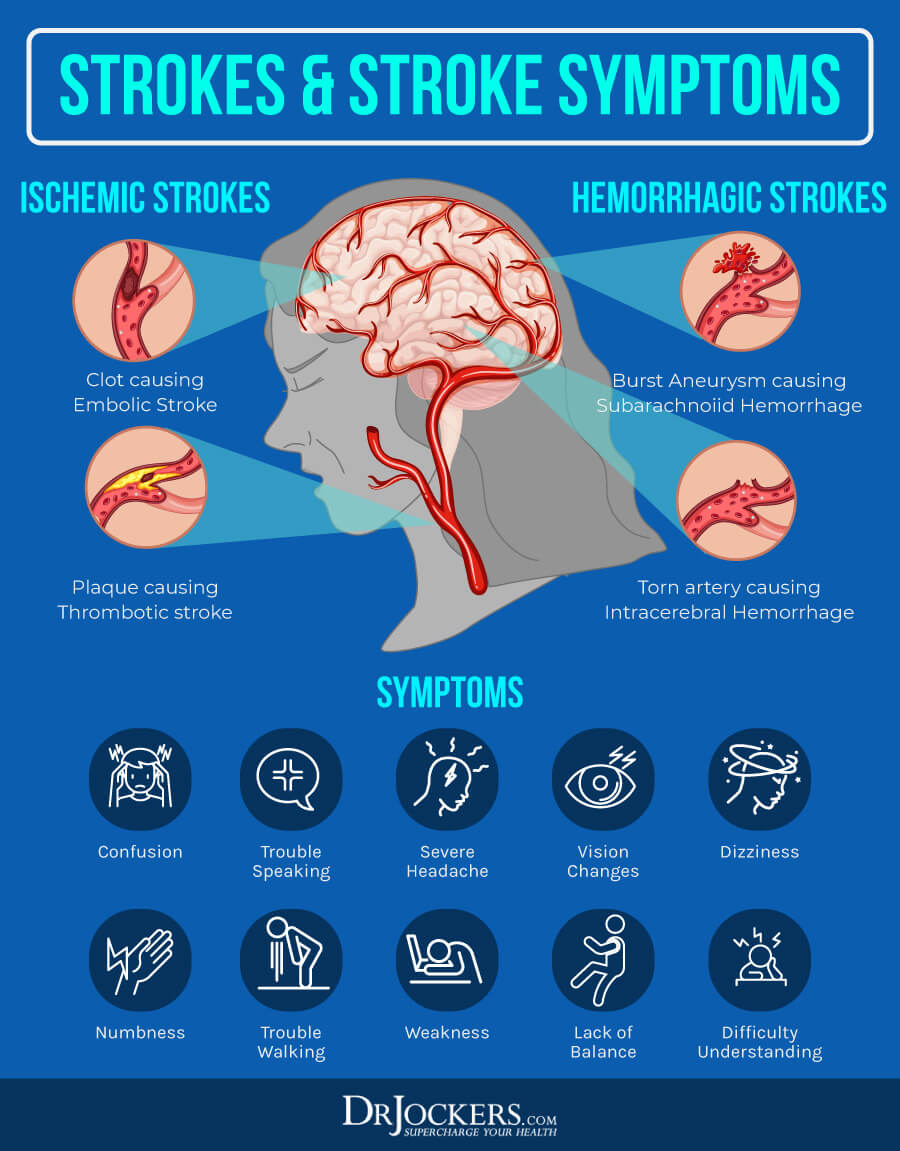
Early Symptoms of Cerebrovascular Disease
While the symptoms of the cerebrovascular disease depend on where the blockage is located and how it affects your brain, common symptoms include (2):
- Severe and sudden headache
- Confusion
- Loss of balance
- Numbness weakness
- Disorientation
- Dizziness
- Nausea or vomiting
- Hemiparesis, or weakness on one side
- Hemiplegia, or paralysis on one side
- Loss of vision on one side
- Slurred speech or other communication difficulties
- Becoming unconscious
When to Call 911?
The American Stroke Association developed the F.A.S.T. acronym to help you to recognize the warning signs of a stroke and to know when to call for help. This is a great acronym to remember for any cerebrovascular disease.
- Face dropping
- Arm weakness
- Speech difficulty
- Time to call 911
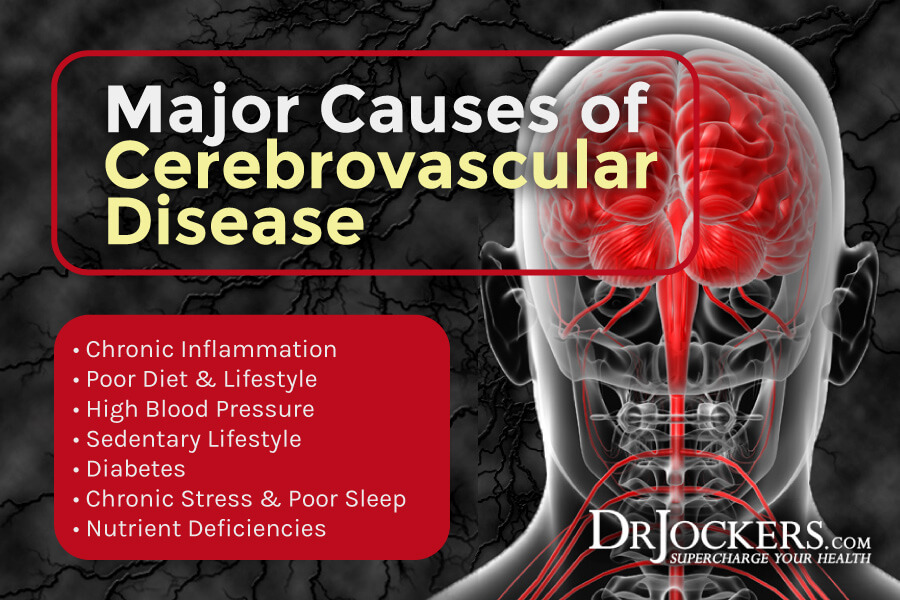
Major Causes of Cerebrovascular Disease
To prevent cerebrovascular disease, it is important that you understand the major causes of the disease. Let’s look at the major causes of cerebrovascular disease.
Chronic Inflammation and Cerebrovascular Disease
Chronic inflammation is a silent killer and the underlying cause of most modern-day chronic diseases. Inflammation can damage the walls of your blood vessels and contribute to the progression of various cerebrovascular diseases.
It may lead to a fatty, cholesterol-rich build-up or contribute to the narrowing of your arteries or create blocks that increase your risk of a stroke or other cerebrovascular disease (4, 5).
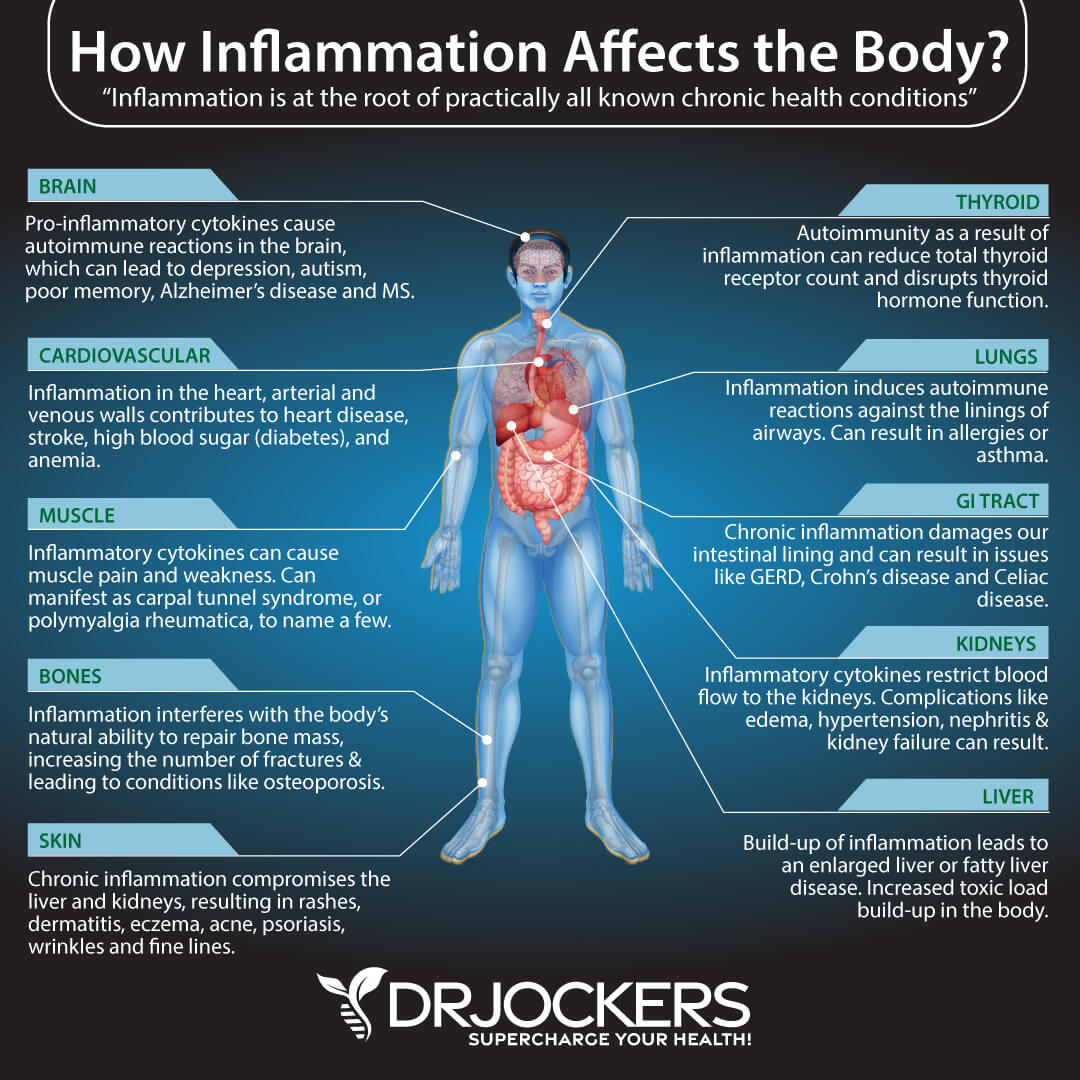
Poor Diet & Lifestyle
A poor diet and lifestyle can contribute to the risk factors and increase your risk of cerebrovascular disease. Eating an inflammatory diet full of refined sugar, processed foods, junk food, and little green, fruits, vegetables, and other anti-inflammatory, nutrient-dense foods leads to chronic inflammation and contributes to cerebrovascular disease.
A diet high in carbohydrates can lead to high insulin which is a factor in high blood pressure and the development of cerebrovascular disease. A diet high in omega 6 rich fats such as canola oil, soybean oil, corn oil and cottonseed oil is also a major inflammatory trigger.
In addition, if we aren’t consuming enough anti-oxidant compounds from low-glycemic fruit, vegetables and herbs that can also lead to damage to our blood vessels. It is also very important to consume a diet high in omega 3 fatty acids from wild-caught fish and grass-fed animal products.
Besides diet, smoking, long-term exposure to second-hand smoke, and too much alcohol are also contributing factors to the disease. In fact, up to 7 percent of cerebrovascular death are contributed to smoking tobacco (2, 6, 7).
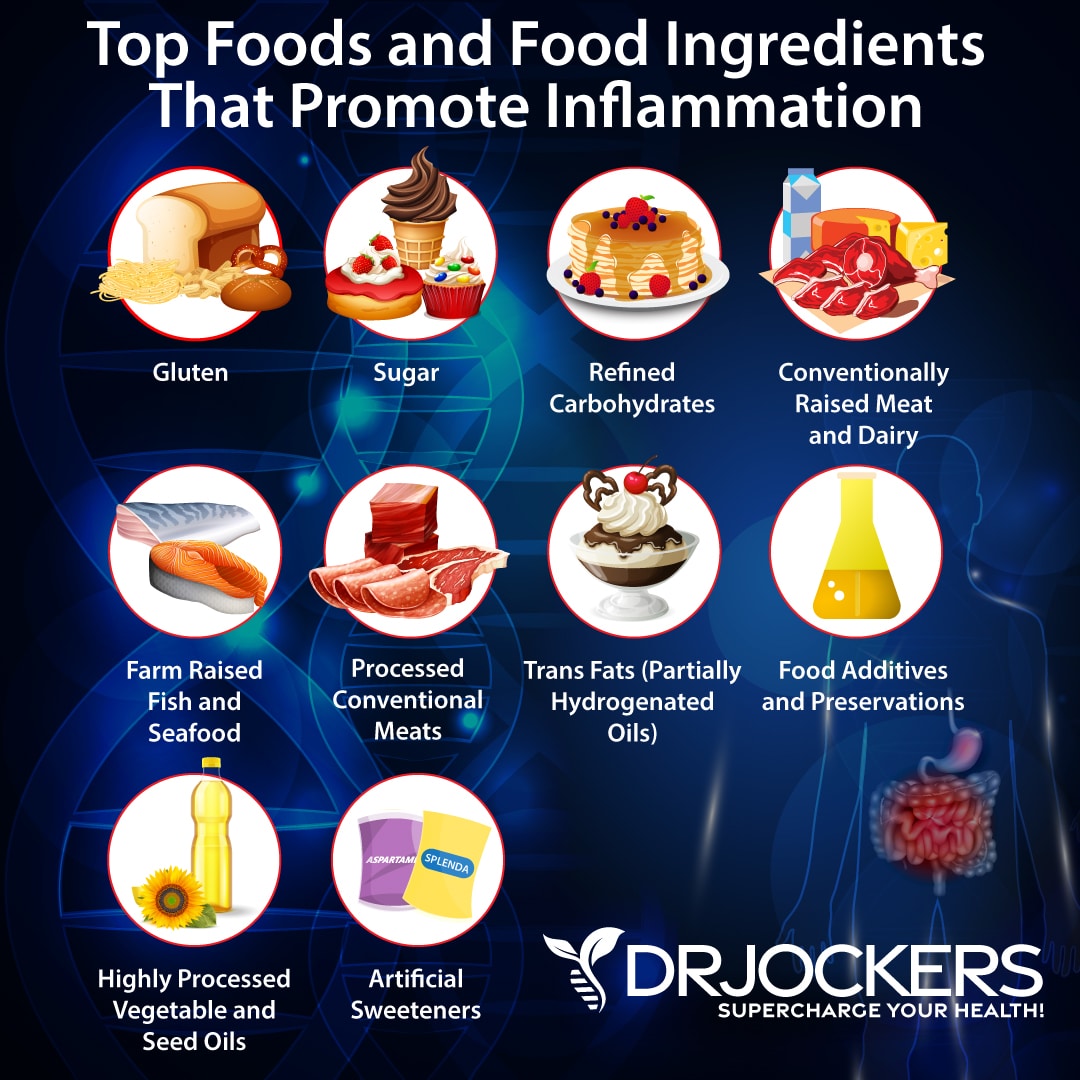
High Blood Pressure and Cerebrovascular Disease
High blood pressure affects about a quarter of the population and is the biggest risk factor for stroke and cerebrovascular disease. The problem is that high blood pressure damages your blood vessels slowly and overtime.
You may go without symptoms for a while before experiencing fatigue, confusion, chest pain, or other symptoms of high blood pressure. Regular check-ups and controlling your blood pressure is critical when it comes to cerebrovascular disease prevention (2, 8, 9).
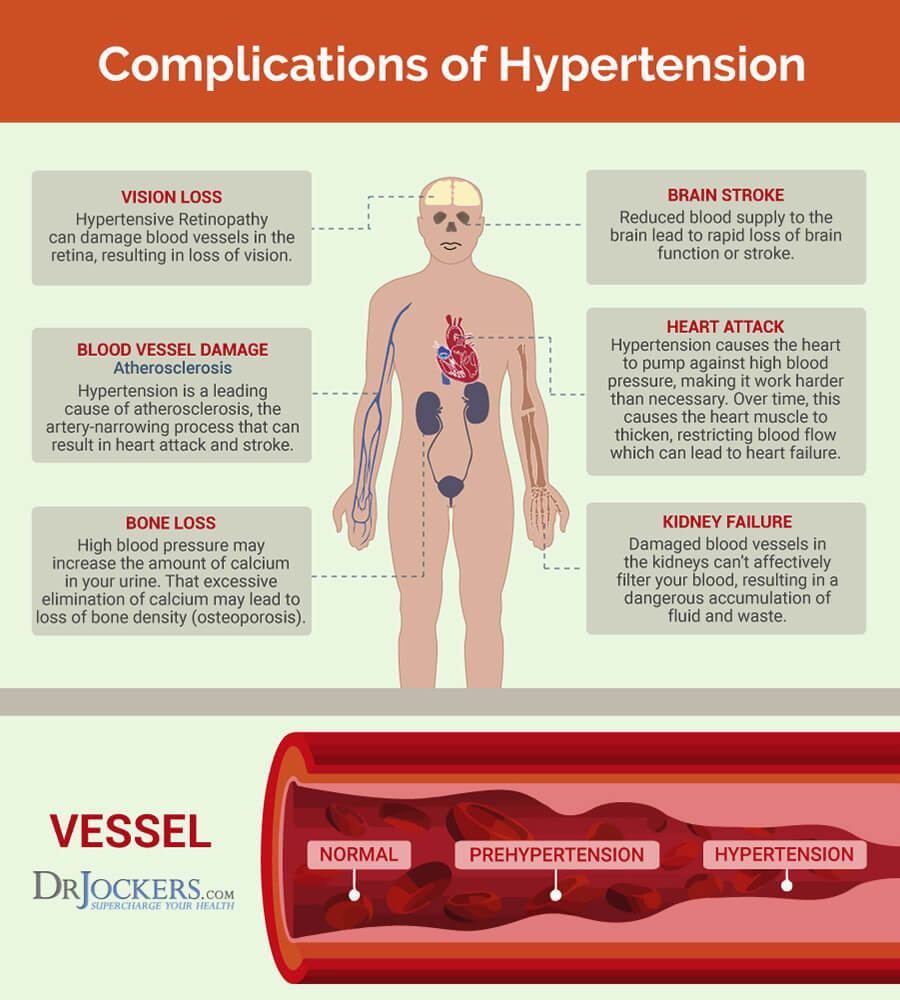
Sedentary Lifestyle and Cerebrovascular Disease
Movement is critical for your health. It helps to reduce inflammation, lower stress, increase cardiovascular fitness, support healthy blood circulation, and improve blood pressure. Being inactive also increases your risk of obesity.
A sedentary lifestyle and obesity can both increase your risk of high blood pressure, diabetes, inflammation, and high cholesterol, which are all contributing factors to cerebrovascular disease (2, 10).
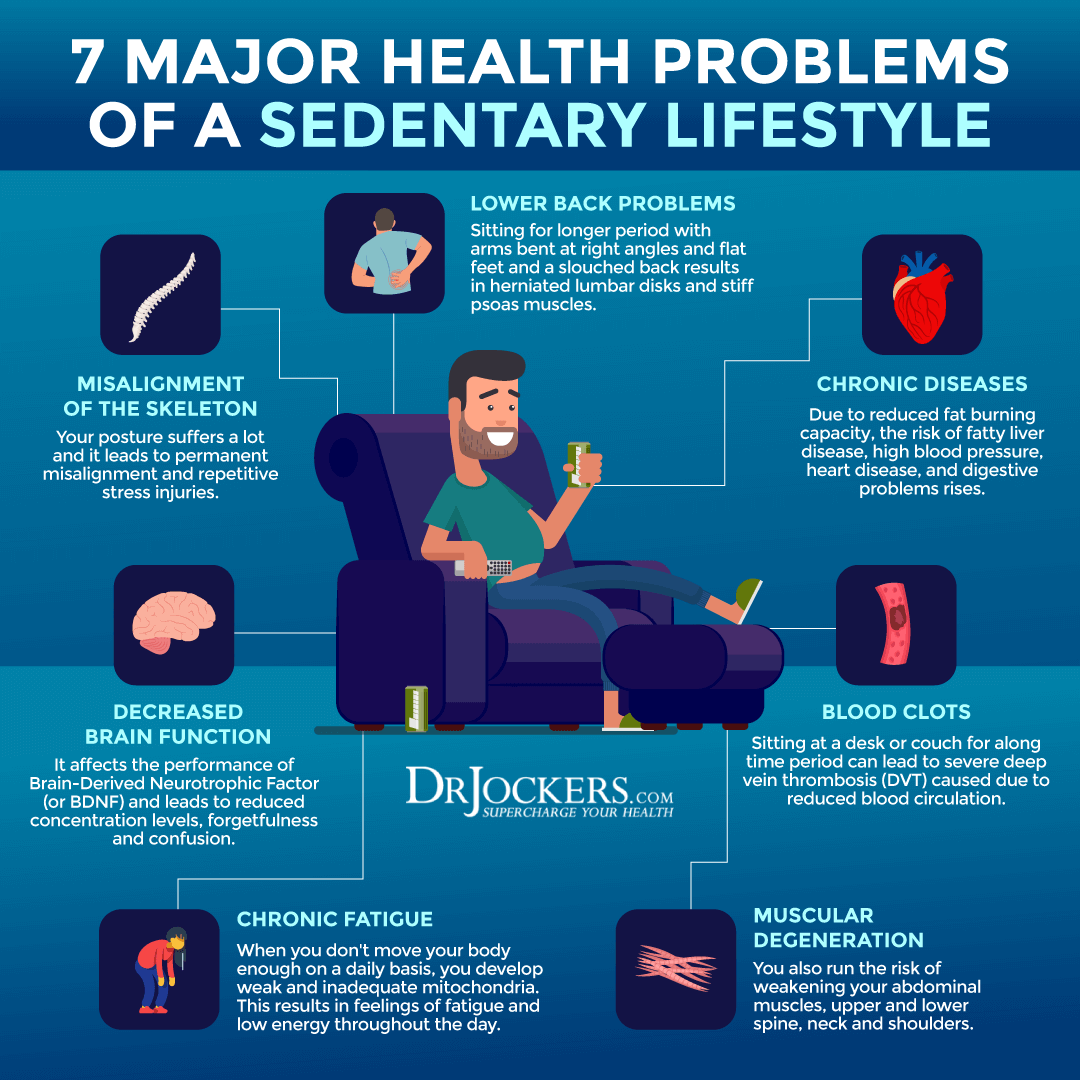
Diabetes and Cerebrovascular Disease
About 20 to 40 percent of people with cerebrovascular disease also suffer from diabetes. It is crucial to control blood sugar levels, blood pressure, and cholesterol levels.
Insulin resistance or inefficient insulin secretion puts pressure on and damages your blood vessels and may increase your risk of high blood pressure. Diabetes, especially untreated diabetes, increases your risk of cerebrovascular disease (2, 11).
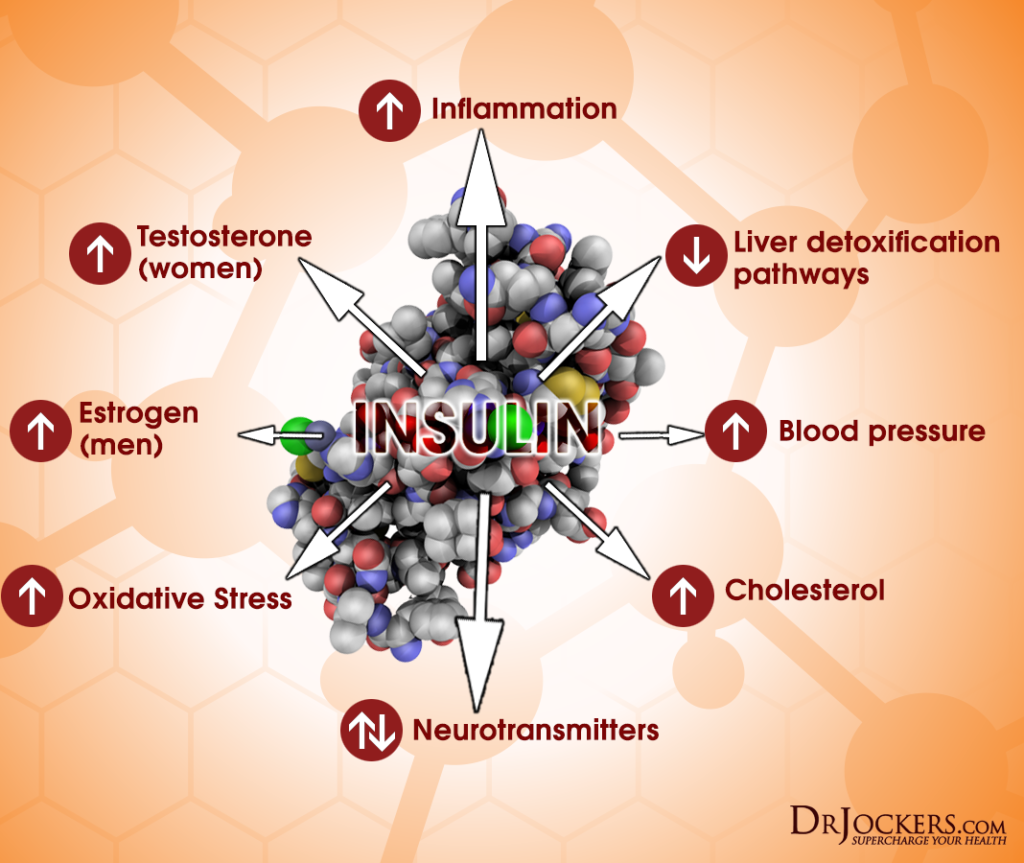
Chronic Stress & Poor Sleep
Increased blood pressure is one of your body’s response to stress. Chronic stress may increase your risk of high blood pressure. To cope with stress you may end up overeating, reaching for inflammatory foods, and feeling less motivated to exercise.
These habits can increase your risk of inflammation, obesity, high blood pressure, blood sugar problems, and other risk factors of cerebrovascular disease. Chronic stress may also lead to poor sleep, while poor sleep contributes to chronic stress feeding into an unhealthy cycle that may increase your risk of cerebrovascular disease (2, 12, 13).
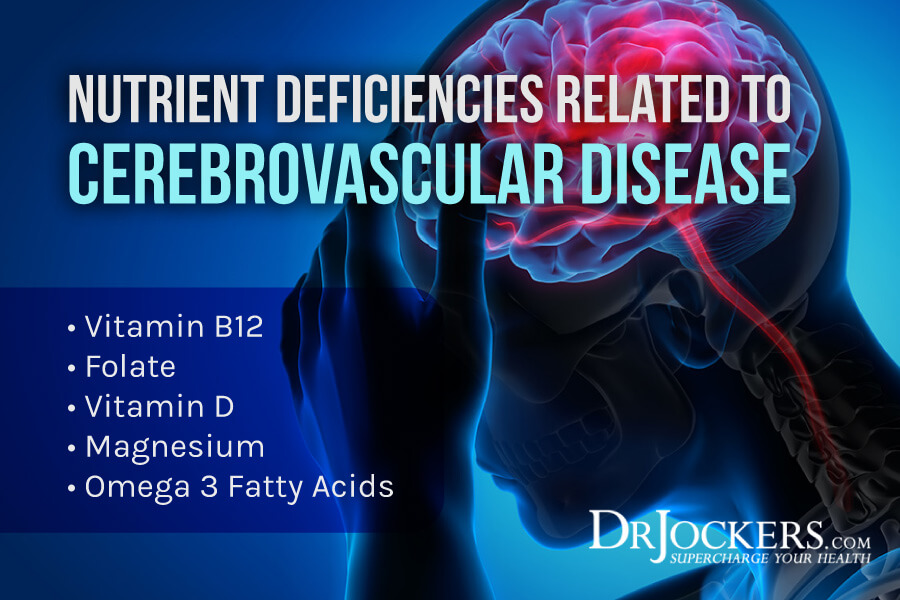
Nutrient Deficiencies and Cerebrovascular Disease
Nutrition is one of the key factors when it comes to your health. There are certain nutrient deficiencies that may increase your risk of cerebrovascular disease, including vitamin B12, folate, vitamin D, and magnesium.
Vitamin B12
Vitamin B12 is a critical vitamin for nerve and blood vessel health. About 10 to 40 percent of the population is dealing with vitamin B12 deficiency. Vitamin B12 deficiency, however, is a commonly missed risk factor for cerebrovascular diseases, stroke, cognitive dysfunction, and renal disease.
Vitamin B12 is only found in certain animal foods, such as milk, eggs, and poultry, not plant-foods, even many people who consume animal products don’t meet their minimum B12 requirements from food alone making supplementation necessary for many (14).
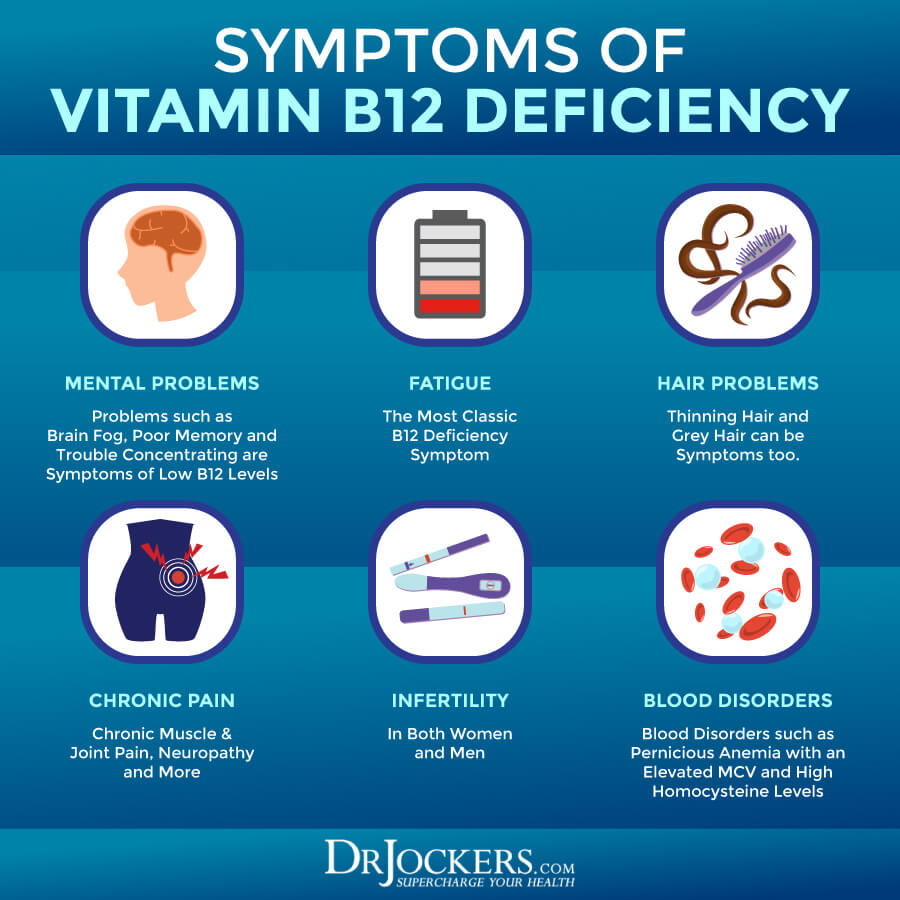
Folate and Cerebrovascular Disease
Folate is one of the most important B vitamins. It is important for the creation of red and white blood cells.
Sufficient amounts of folate are critical as deficiency may increase the risk of cerebrovascular and cardiovascular disease, while supplementation may aid prevention (15).
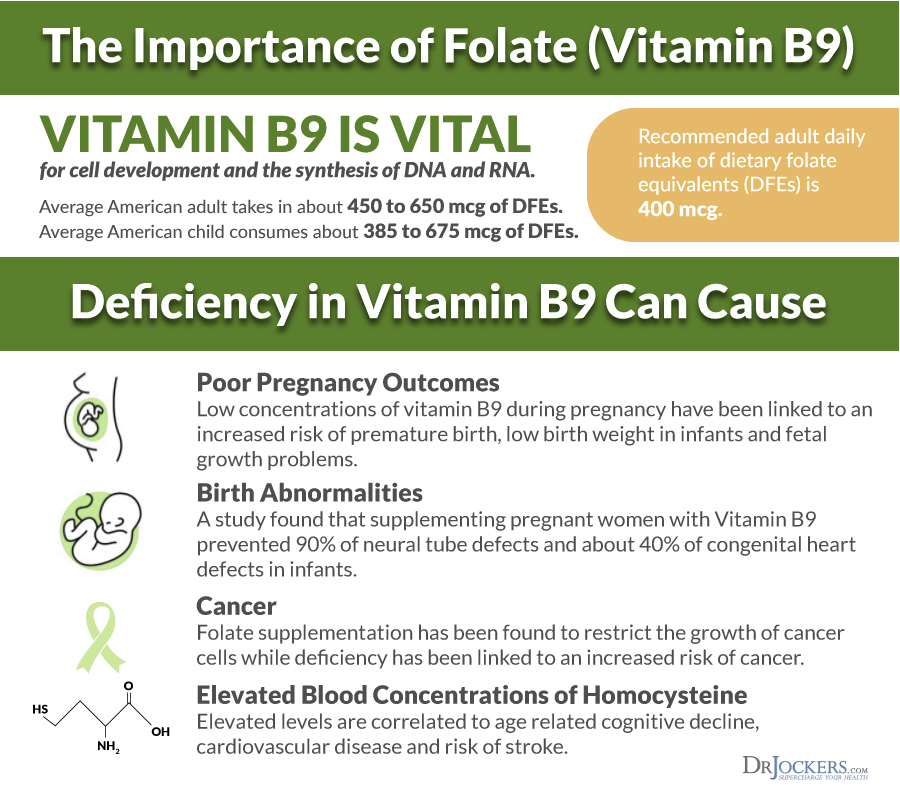
Vitamin D and Cerebrovascular Disease
Vitamin D is not just a vitamin but a neuroprotective prohormone that is critical for many areas of your health. Research has shown that a vitamin D deficiency may contribute to increased risk of stroke and cerebrovascular disease.
Since most people don’t spend enough time outdoors in the soon or live in gloomier, colder climates, supplementation is critical for most people for cerebrovascular disease prevention and overall health (16, 17).

Magnesium
Magnesium is a critical mineral for cardiovascular health, muscle health, sleep, lower stress levels, mental health, headaches and migraines, bone health, blood sugar levels, and other areas of your health.
Yet due to our depleted soil, most people are deficient in magnesium without supplementation. A magnesium deficiency may increase the risk of stroke and cerebrovascular disease among other health issues (18).
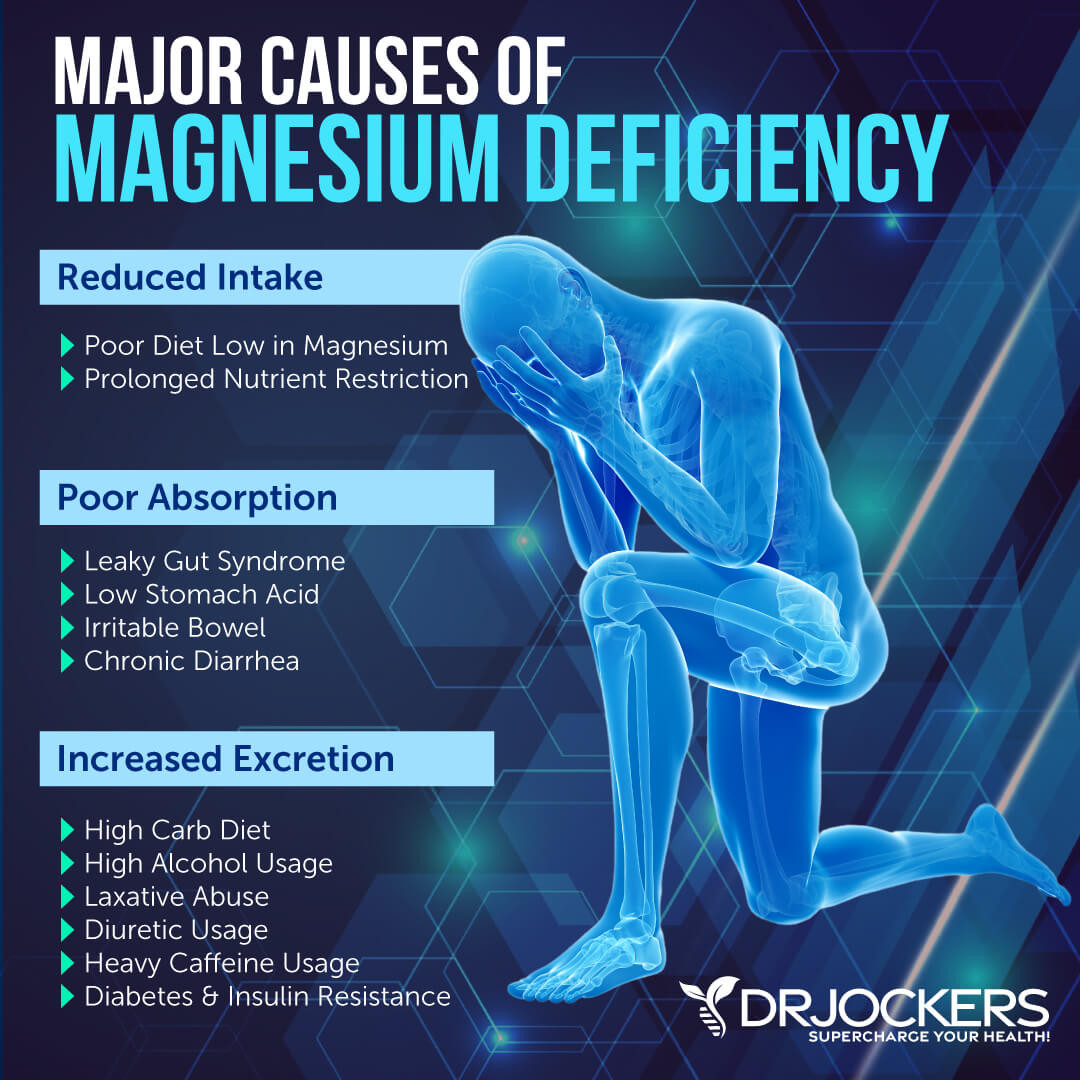
6 Important Lab Tests
There are a number of lab tests that can help your healthcare professional to determine if you are the risk of or have cerebrovascular disease. Some labs such as a standard lipid panel are run often while others you need to request from your medical provider.
These are the tests I recommend and order for my patients regularly. They help us to understand cardiovascular health and inflammatory levels in the body.
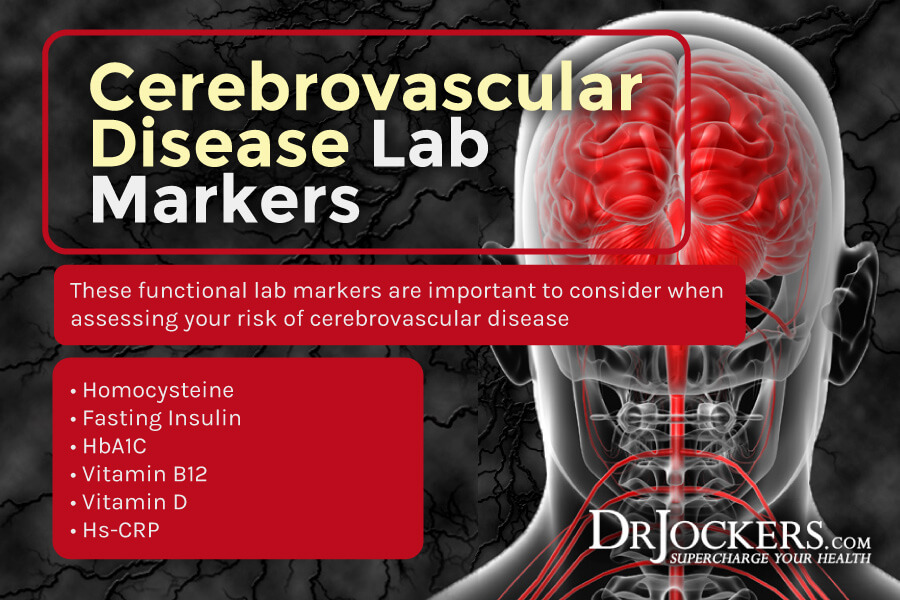
Fasting Insulin
Blood sugar problems are diabetes that may contribute to cerebrovascular disease, so testing your fasting insulin levels is critical. Ideal levels are between 2-5 uIU/mL and anything above 8 increases your risk of cerebrovascular disease.
HbA1C
Hemoglobin A1C or HbA1C is a form of hemoglobin that’s linked to sugar. Ideal levels are between 4.5-5.2% and anything above 5.6 increases your risk of cerebrovascular disease.
Homocysteine
Homocysteine is an amino acid found in your blood. High levels are associated with an increased risk of cerebrovascular disease. Ideal levels are between 6-9 uMol/L and anything above 9 increases the risk of cerebrovascular disease (19, 20).
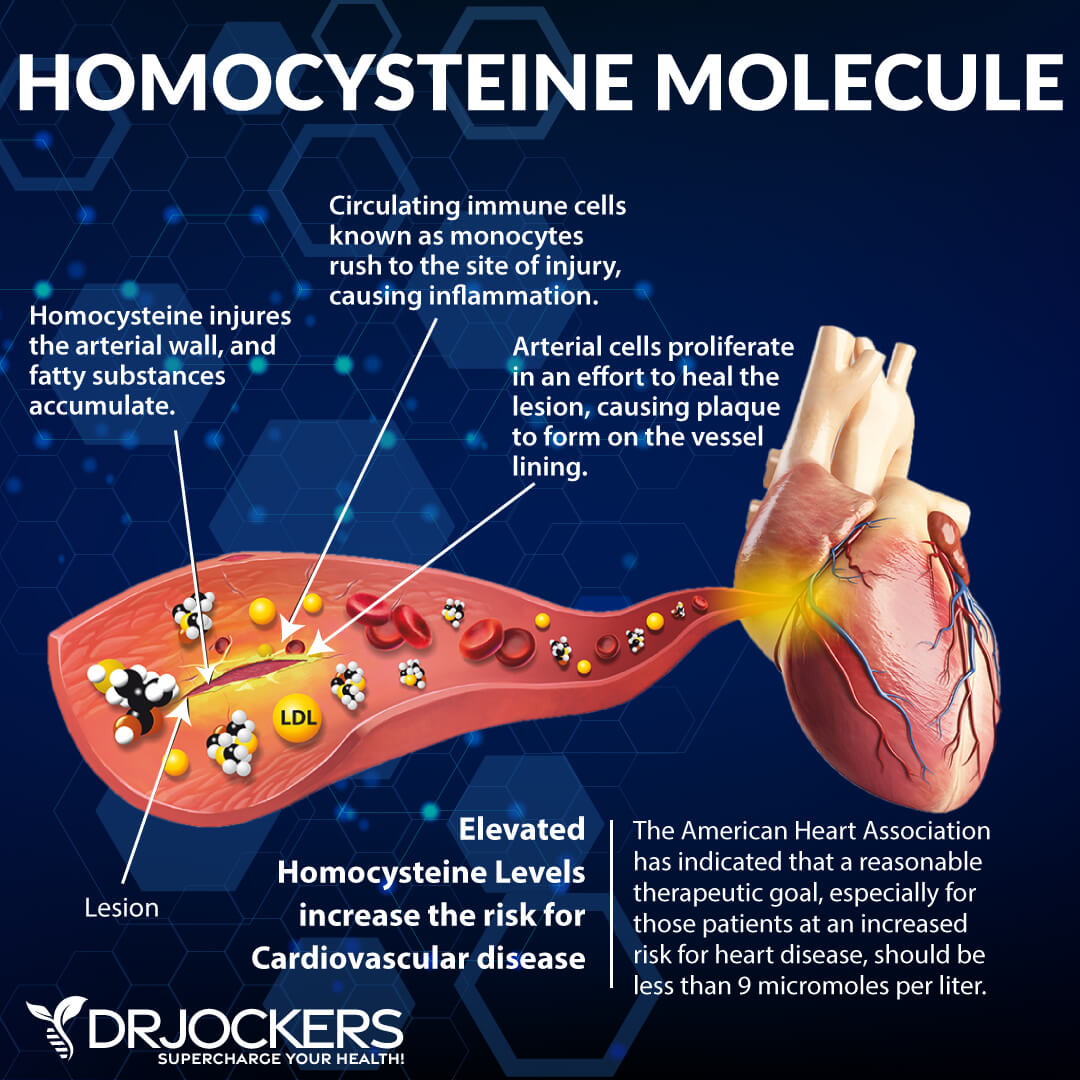
Vitamin B12
Vitamin B12 deficiency may put you at risk of cerebrovascular disease. Ideal levels are between 800-1500 pg/mL. Because vitamin B12 is water-soluble, you don’t have to worry about higher levels.
Vitamin D
Vitamin D deficiency may increase your risk of cerebrovascular disease. Ideal levels are between 50-100. Under 30 ng/mL can seriously increase your risk of cerebrovascular disease
Hs-CRP
High sensitivity C-reactive protein or Hs-CRP is an indicator of inflammation. Ideal levels are under 1 mg/L. Higher levels increase your risk of cerebrovascular disease and cardiovascular disease.
Cholesterol & Triglycerides
High levels of cholesterol and triglycerides can increase your risk of cerebrovascular and cardiovascular disease. Your LDL: HDL cholesterol ratio should be 3:1 or less and for triglycerides, the HDL ratio should be less than 2 and ideally close to 1.
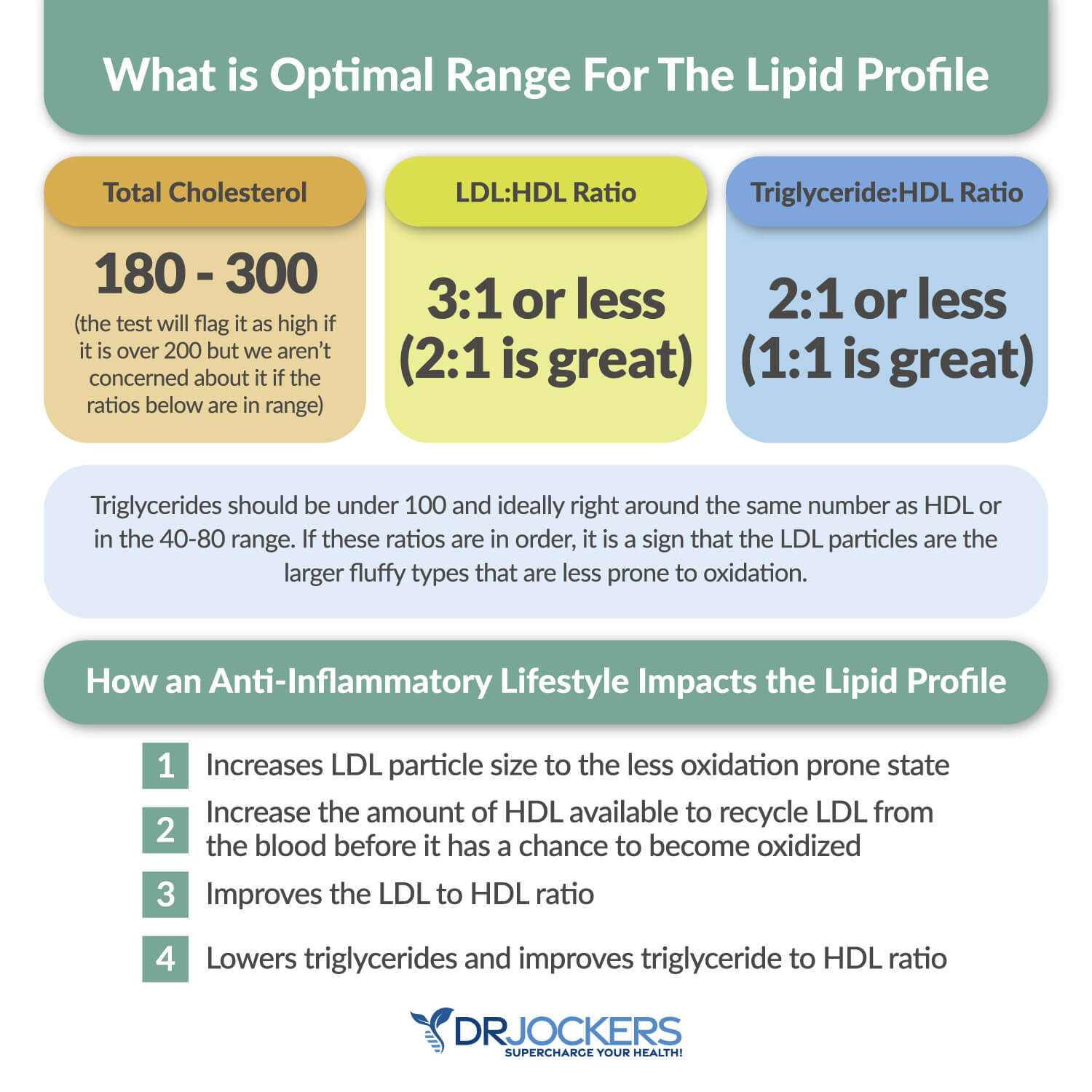
Full Comprehensive Blood Analysis
One of my favorite tests that I regularly recommend to my patients is a Full Comprehensive Blood Analysis. It is the best way to pick up any underlying health challenges and prevent the development of degenerative diseases. With the help of this test, you will understand so much about your health, including your risk factors for cerebrovascular disease. Understanding the current states of your health with the help of these blood markers is critical for prevention and treatment.
Unfortunately, most conventional doctors don’t run such comprehensive tests and costs can be incredibly high even with insurance. By partnering with LabCorp, we have been able to bring down the costs of these lab markers and offer a fantastic rate for cash-paying clients and followers. To learn more about this Comprehensive Blood Analysis, read this article.
Cerebrovascular Disease Support Strategies
Cerebrovascular disease and its risk factors should not be taken lightly. It is important that you take lifestyle and dietary measurements to support healthy blood flow and brain health.
If you have a family history and any of the risk factors above, it is especially important to optimize your lifestyle. While the following strategies are not FDA approved to prevent, mitigate, treat or cure cerebrovascular disease, they can be very helpful for improving cerebrovascular health.
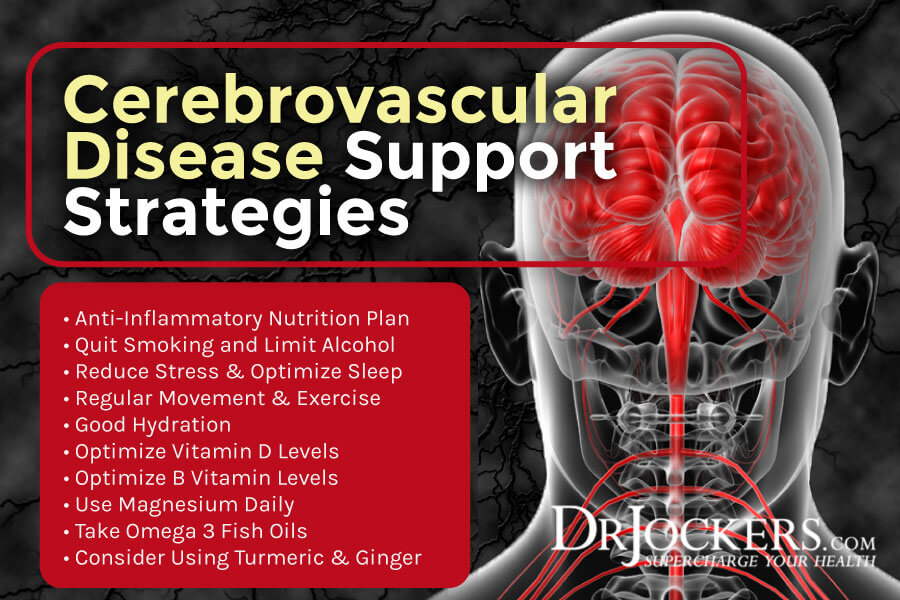
Anti-Inflammatory Nutrition Plan
Cleaning up your diet is the first and a critical step for cerebrovascular disease prevention. I recommend an anti-inflammatory nutrition plan. Start by removing all inflammatory foods, including refined sugar and grains, soda and sugary drinks, gluten, refined oils, deep-fried foods, processed foods, conventional dairy, grain-fed meat and eggs, and foods that you are sensitive to.
Instead, implement an anti-inflammatory nutrition plan. This means eating lots of greens, vegetables, low glycemic index fruits, herbs, spices, nuts and seeds, healthy fats, grass-fed meat, and wild-caught fish. To learn more about an anti-inflammatory diet, I recommend this article.
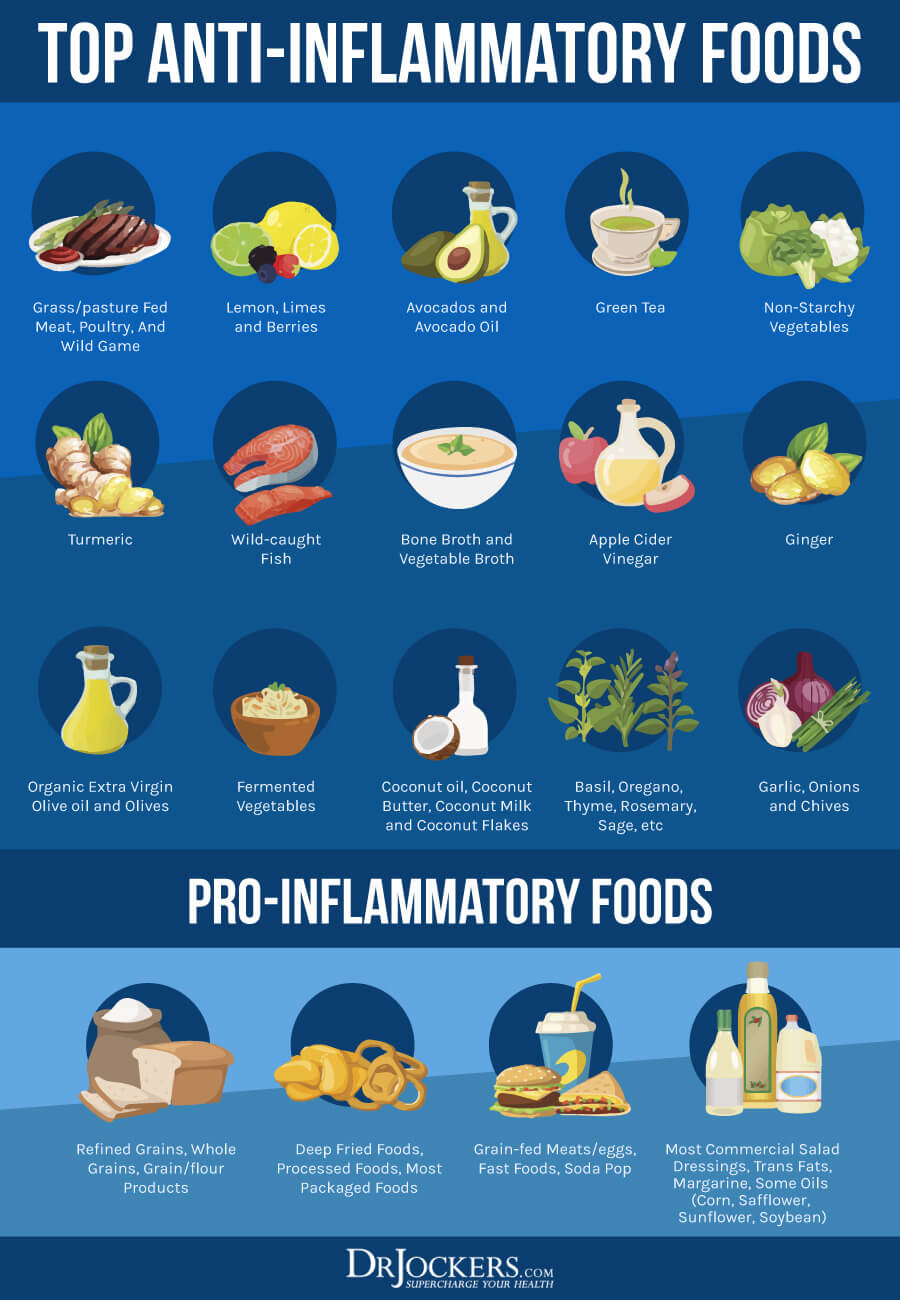
Quit Smoking and Limit Alcohol
If you are a smoker, it is critical that you stop smoking. If you have difficulties doing it alone, you may benefit from working with a counselor, health coach, or hypnotherapist. It is important that you remember that second-hand smoking is also incredibly damaging to your health.
Avoid second-hand smoke as much as possible and encourage your friends and family to quit smoking as well. Limit alcohol and drink only occasionally and moderately.
Since many drinks are high in carbs and include inflammatory glutens, I recommend low-carb, gluten-free drinks, such as dry farms red wine, vodka or rum with sparkling water and a splash of citrus, instead of sugary cocktails or beer. If you are up for it, you may even eliminate alcohol from your life.

Reduce Stress & Optimize Sleep
Reducing stress and optimizing your sleep is critical if you want to prevent cerebrovascular disease. To reduce stress, practice meditation, breathwork, keep a daily gratitude journal, practice positive self-talk and affirmations, journal, pray, spend time in nature, and do some grounding.
To optimize your sleep, keep a regular bedtime and nighttime routine, turn off electronics several hours before bedtime, avoid sugar and caffeine, engage in relaxing activities before bed, and make sure that you have a comfortable bed, bedding, and pillows.
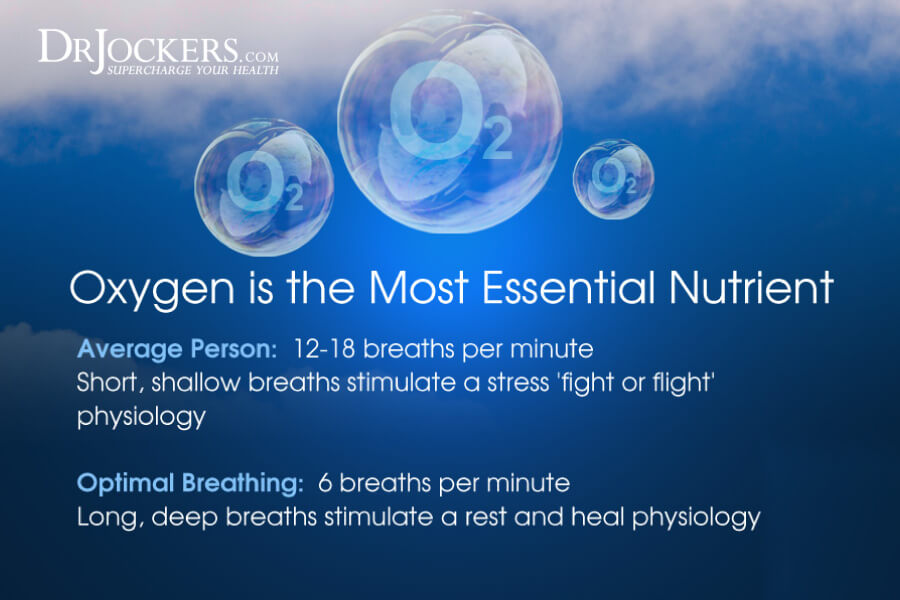
Regular Movement and Exercise
Being sedentary is one of the risk factors for cerebrovascular disease. Regular movement and exercise help to decrease inflammation, reduce stress, improve sleep, and better your cardiovascular health. I recommend that you stay active throughout your days. Take a walk during lunch, take the stairs, stretch, dance for your favorite song, garden, and play with your kids or dogs.
Exercise at least 20 to 30 minutes a day 5 days a week. I recommend a combination of cardiovascular exercise, strength and resistance training, and low-impact exercise. If you are new to exercise or have some health concerns, you may benefit from working with a physical therapist or personal trainer.
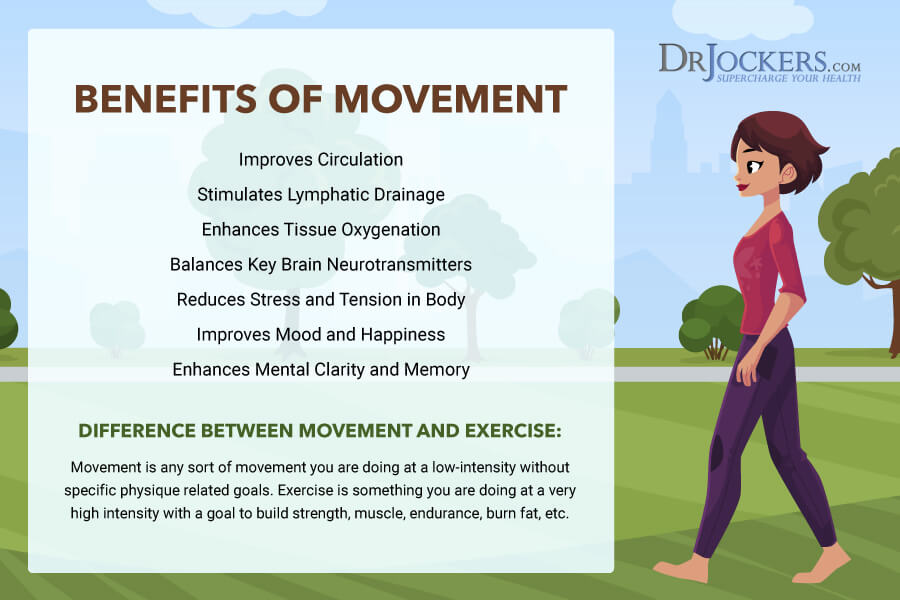
Good Hydration
Good hydration is just as important as good nutrition when it comes to your health. Drink plenty of water. I recommend at least 8 to 10 glasses a day, more if you are out on the sun, exercise a lot, do physical labor, sick, or dehydrated.
Add some lemon for bonus cleansing and alkalizing benefits. On top of your water intake, drink green juices and smoothies and eat plenty of hydrating fruits and veggies.

Optimize Vitamin D Levels
Researchers believe that vitamin D3 acts to protect an aging brain and boost overall memory and cognitive function. This is thought to be done by increasing levels of protective antioxidants, increasing key hormones and suppressing a hyperactive immune system that can inflame the neurological circuitry.
A large 2018 meta-analysis showed that low vitamin D levels was associated with an increased risk of ischemic stroke (21). Many researchers believe that vitamin D supplementation is one of the easiest and inexpensive ways to prevent cerebrovascular disease (22).
Optimize your vitamin D levels by spending time on the sun, eating vitamin D-rich foods, including fatty fish, beef liver, and egg yolk, and taking vitamin D supplements.
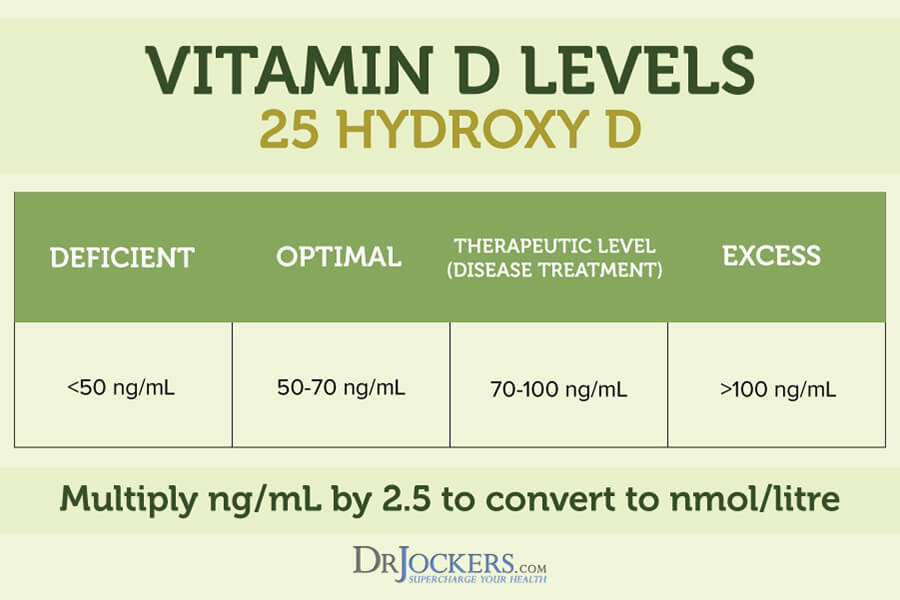
Optimize B Vitamin Levels
Vitamin B12, folate, and other B vitamins are important for good circulation and cerebrovascular health. Eat plenty of foods that are rich in vitamin B, including leafy greens, avocados, lentils, eggs, nuts, and seeds.
If you have high homocysteine levels or were tested to have low B12 levels it would be beneficial to take a b complex supplement. Look for one with pre-activated forms of B vitamins such as methyl-folate, methyl-cobalamin (B12), Pyridoxal-5-Phosphate form of B6, and Riboflavin-5-phosphate form of vitamin B2. The methyl groups are in the active form and will be better utilized by the body.
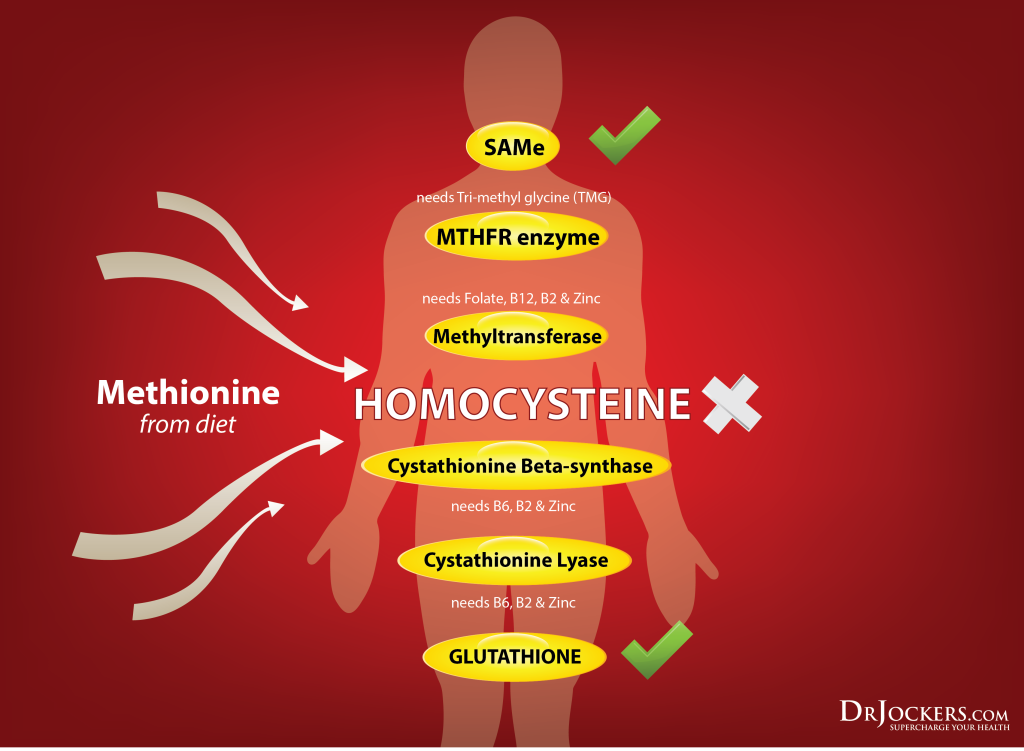
Use Magnesium Daily
Use magnesium daily to reduce the risk factors of cerebrovascular diseases, such as stress and nutrient deficiency. It helps muscle function, healthy nerve conduction, neurological function, energy production, mood, and mental health.
I recommend looking for a magnesium amino acid chelate form such as magnesium L-threonate, magnesium citrate, magnesium glycinate, magnesium malate or magnesium orotate for the best results. Magnesium oxide is a very inexpensive form but has poor absorbability and acts more like a laxative on the body.
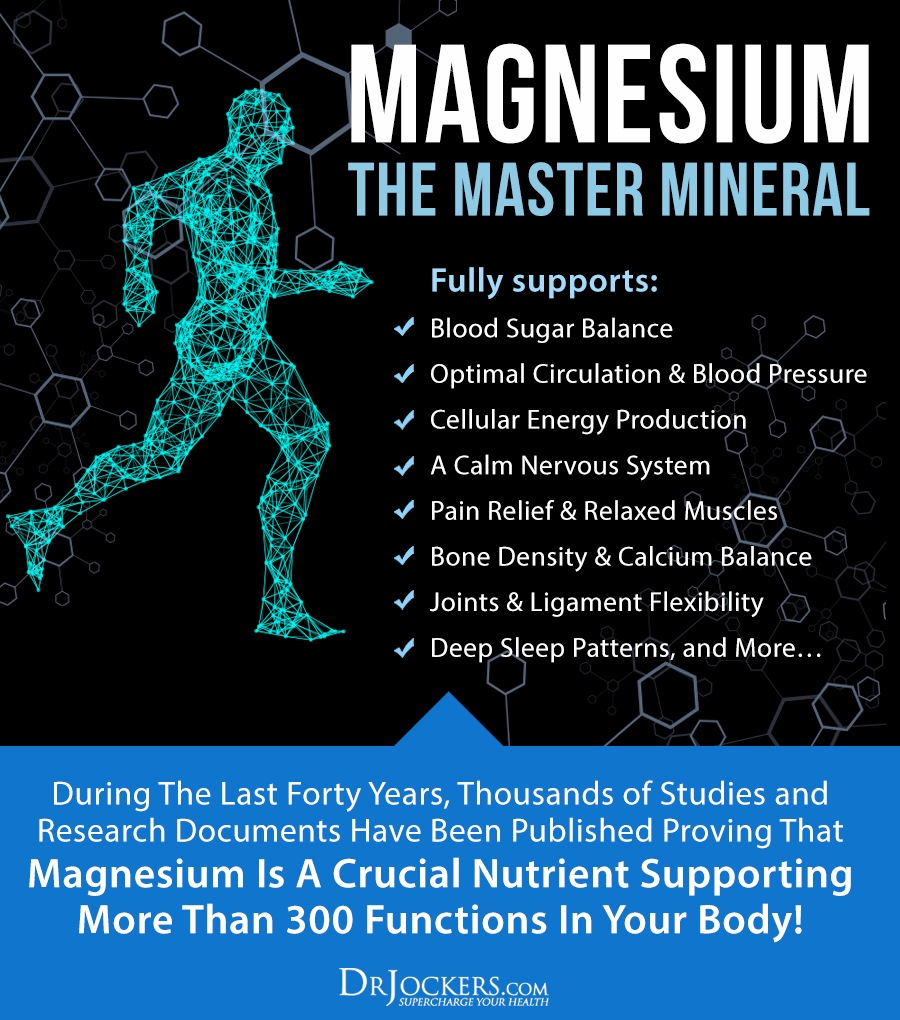
Take Omega-3 Fish Oils
Omega-3 fish oils help to improve the inflammatory response. In 3 large US cohorts, higher circulating levels of the long-chain omega 3 fatty acid DHA were inversely associated with incident atherothrombotic stroke (23).
Plant based omega 3’s such as flax oil only contain the small chain omega 3 called ALA and do not have any DHA. It is very hard for our body to convert ALA into DHA so it is best to get a high quality fish or krill oil that is rich in EPA and DHA. You want to find a brand that is molecularly distilled to take out any heavy metals and other unwanted contaminants.
Be sure to discuss with your physician before using as fish oils have a blood thinning affect and can be contraindicated if you are on blood thinning medications.
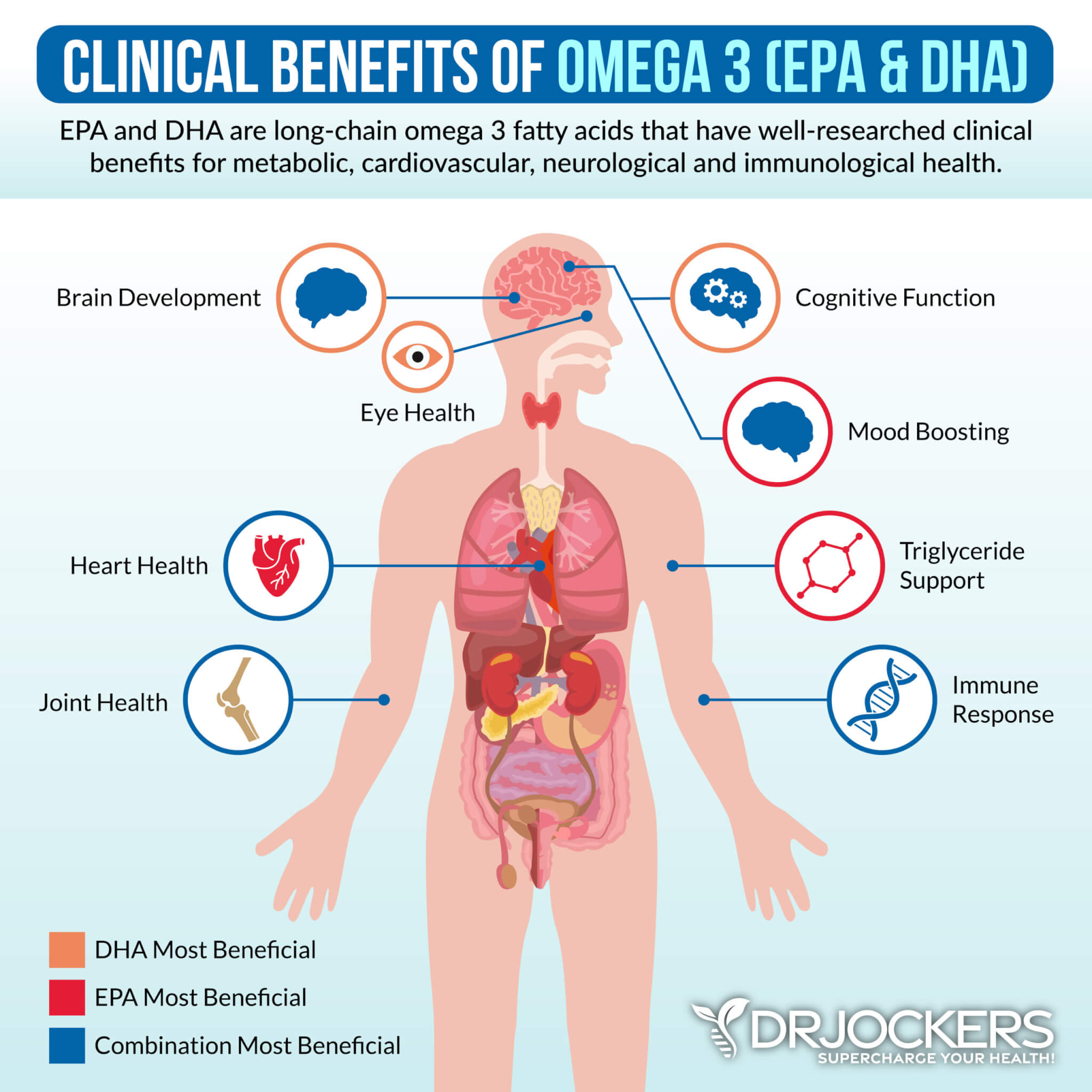
Consider Using Turmeric and Ginger
To support healthy levels of inflammation and improve cerebrovascular health, consider using turmeric and ginger which act to down regulate inflammation in the body and improve vascular health.
A 2018 study suggests that curcumin exerts a stroke preventive effect by attenuating oxidative stress to improve vascular endothelial function (24). Ginger extracts were shown to impact other inflammatory pathways that are associated with the development of cerebrovascular disease (25).
Be sure to discuss with your physician before using turmeric or ginger as they have a blood thinning affect and can be contraindicated if you are on blood thinning medications.
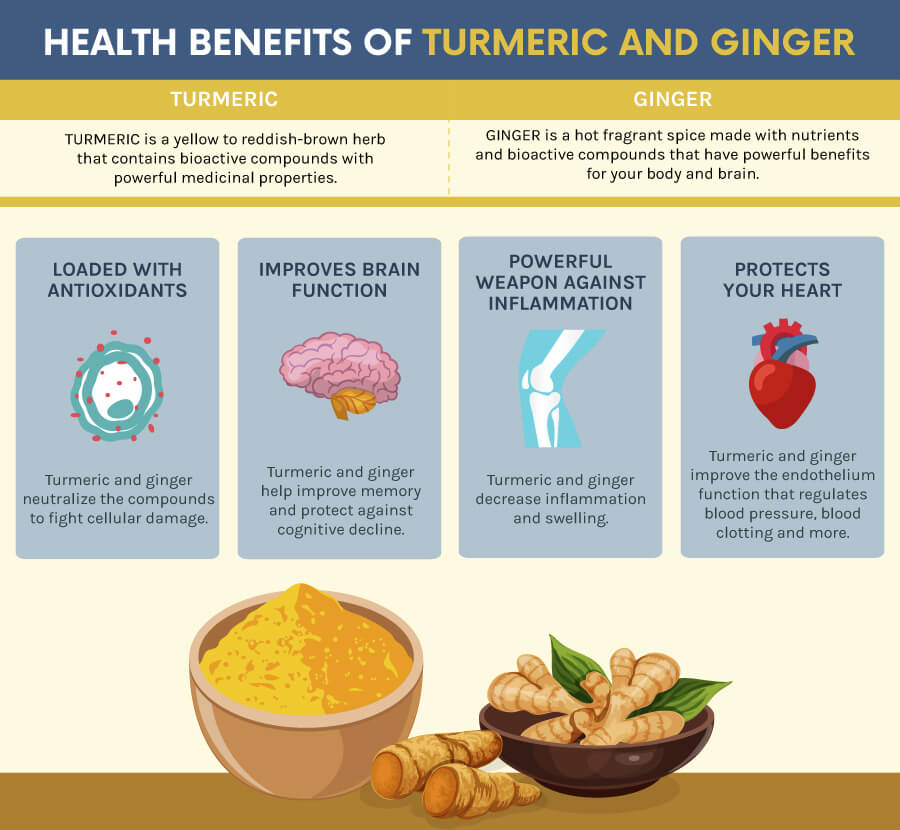
Final Thoughts on Cerebrovascular Disease
Cerebrovascular disease affects your blood vessels and your brain’s blood supply. It is the fifth most common cause of death in the United States. You don’t have to be part of the statistics and it’s critical that you make dietary and lifestyle changes to improve your cerebrovascular health.
If you want to work with a functional health coach, I recommend this article with tips on how to find a great coach. On our website, we offer long-distance functional health coaching programs. For further support with your health goals, just reach out—our fantastic coaches are here to support your journey.
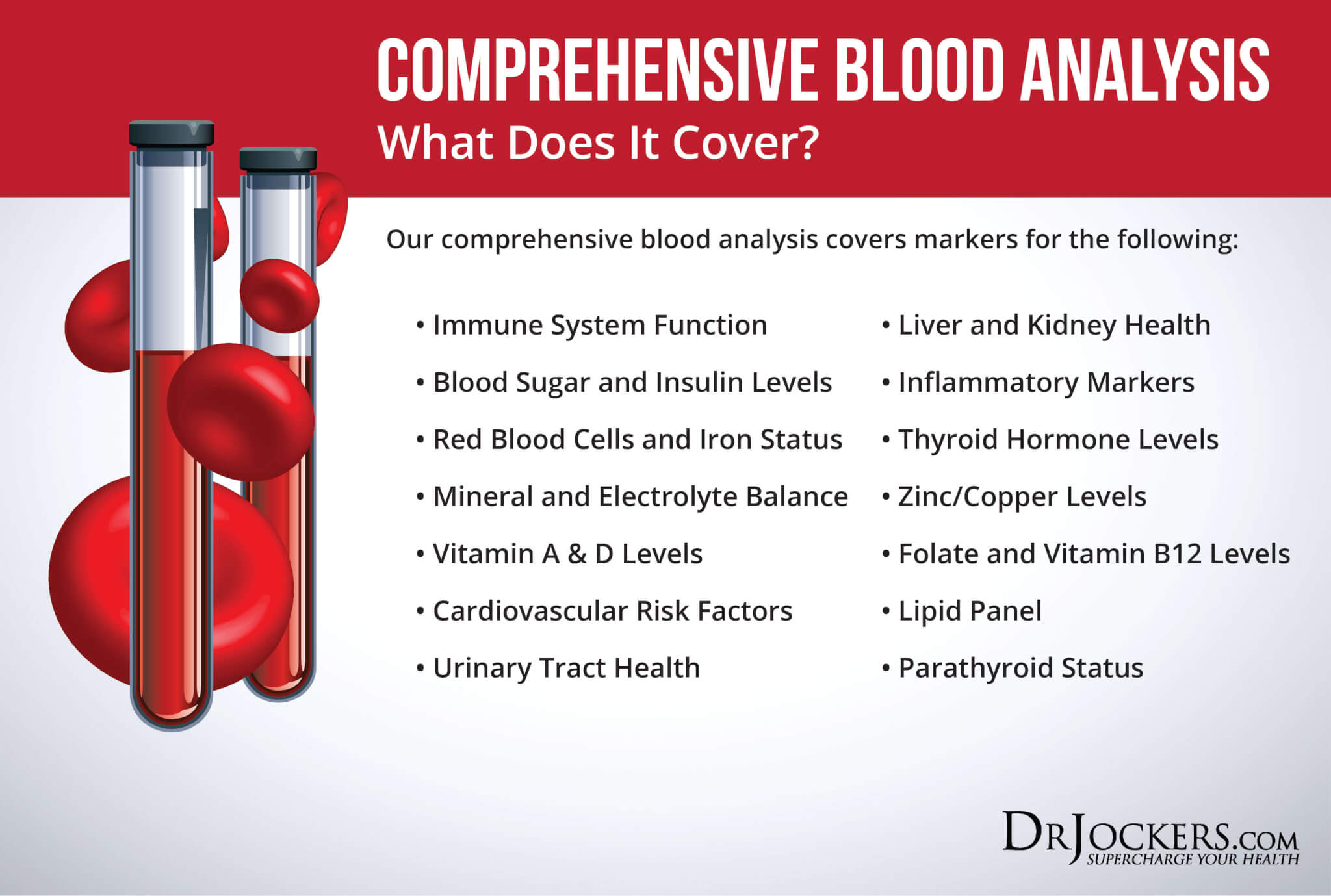



is cbd oil the same as hemp extract Does CBD oil help sexually
cbd capsules calgary
Yes CBD oil and hemp are very similar. Here is a helpful article: https://drjockers.com/cbd-oil-benefits/
Thank you so much for this article. It’s really a guide to improving my health now. God bless you and thanks again from Nigeria
So glad to hear that Amara! Blessings to you!
Excellent information.Thank you so much. I am very low on B-12.Will follow your advise.